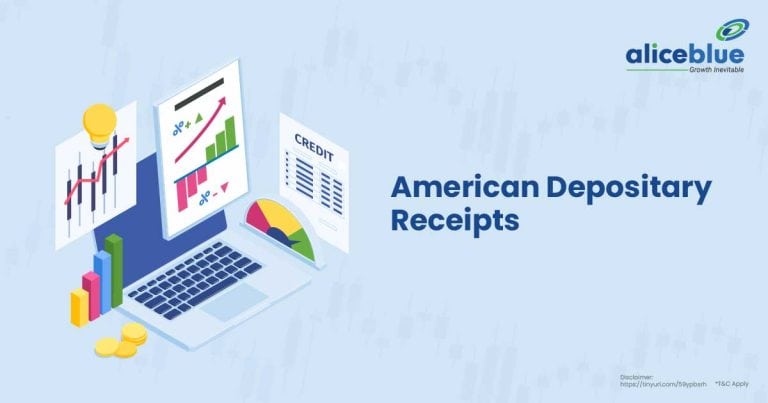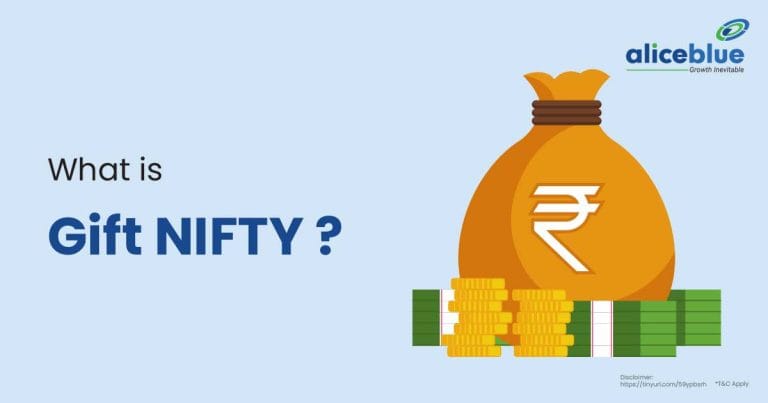Indus Towers Ltd’s fundamental analysis highlights key financial metrics: Market Cap of ₹112,784.56 crore, PE Ratio of 18.68, Debt to Equity of 75.93, and Return on Equity of 25.07%. These indicators reflect the company’s financial health and market valuation.
Content:
- Indus Towers Ltd Overview
- Indus Towers Financial Results
- Indus Towers Limited Financial Analysis
- Indus Towers Ltd Company Metrics
- Indus Towers Limited Stock Performance
- Indus Towers Ltd Peer Comparison
- Indus Towers Shareholding Pattern
- Indus Towers Ltd History
- How To Invest In Indus Towers Limited Share?
- Indus Towers Ltd Fundamental Analysis – FAQs
Indus Towers Ltd Overview
Indus Towers Ltd is an Indian provider of telecom infrastructure, specializing in deploying, owning, and managing telecom towers and communication structures for various mobile operators. It operates in the telecommunications sector, offering tower infrastructure services.
The company is listed on both the NSE and BSE. With a market capitalisation of ₹112,784.56 crores, it’s currently 8.28% away from its 52-week high and 165.73% away from its 52-week low.

Indus Towers Financial Results
Indus Towers Ltd showcased strong financial performance in FY24, with sales of ₹28,601 crores and a net profit of ₹6,036 crores, a significant increase from FY23. The company’s operating profit margin (OPM) improved to 51%, reflecting enhanced operational efficiency.
1. Revenue Trend: Sales increased slightly to ₹28,601 crores in FY24 from ₹28,382 crores in FY23, indicating stable revenue growth despite market challenges.
2. Equity and Liabilities: Equity capital remained stable at ₹2,695 crores in FY24, with total liabilities rising to ₹55,868 crores from ₹46,572 crores in FY23, showing an increase in financial obligations.
3. Profitability: Net profit surged to ₹6,036 crores in FY24, up from ₹2,040 crores in FY23, demonstrating significant profitability growth.
4. Earnings per Share (EPS): EPS increased to ₹22.40 in FY24 from ₹7.57 in FY23, reflecting a substantial improvement in earnings per share.
5. Return on Net Worth (RoNW): Although specific RoNW figures aren’t provided, the significant rise in net profit and EPS suggests an improved return on net worth in FY24.
6. Financial Position: The financial position strengthened in FY24, with total assets rising to ₹55,868 crores from ₹46,572 crores in FY23, indicating robust asset growth.
Indus Towers Limited Financial Analysis
| FY 24 | FY 23 | FY 22 | |
| Sales | 28,601 | 28,382 | 27,717 |
| Expenses | 14,044 | 18,713 | 12,817 |
| Operating Profit | 14,557 | 9,669 | 14,901 |
| OPM % | 51 | 34 | 54 |
| Other Income | 1,490 | -132 | 459 |
| EBITDA | 16,046 | 10,030 | 15,359 |
| Interest | 1,864 | 1,454 | 1,603 |
| Depreciation | 6,060 | 5,324 | 5,325 |
| Profit Before Tax | 8,122 | 2,759 | 8,431 |
| Tax % | 26 | 26 | 24 |
| Net Profit | 6,036 | 2,040 | 6,373 |
| EPS | 22.4 | 7.57 | 23.65 |
| Dividend Payout % | 0 | 0 | 46.51 |
* Consolidated Figures in Rs. Crores
Indus Towers Ltd Company Metrics
Indus Towers Ltd’s company metrics include a market capitalization of ₹112,784.56 crore, a book value per share of ₹100, and a face value of ₹10. With a debt-to-equity ratio of 75.93, a return on equity of 25.07%, and no dividend yield, these figures underscore the company’s financial position and investment profile.
Market Capitalization: Market Capitalization represents the total market value of Indus Towers’ outstanding shares, amounting to ₹112,784.56 crore.
Book Value: The book value per share of Indus Towers is ₹100, indicating the value of the company’s net assets divided by its shares outstanding.
Face Value: The face value of Indus Towers’ shares is ₹10, which is the original cost of the shares as stated on the certificate.
Asset Turnover Ratio: The asset turnover ratio of 0.59 measures how efficiently Indus Towers uses its assets to generate revenue.
Total Debt: The total debt of ₹20,531 crore represents the sum of all short-term and long-term debt obligations of Indus Towers.
Return on Equity (ROE): The ROE of 25.07% measures Indus Towers’ profitability in generating income from its equity investments.
EBITDA (Q): The quarterly EBITDA of ₹4,560.5 crore represents Indus Towers’ earnings before interest, taxes, depreciation, and amortization.
Indus Towers Limited Stock Performance
Indus Towers Ltd has shown remarkable returns over different investment periods. With a 1-year return of 165%, a 3-year return of 25%, and a 5-year return of 11.6%, the company’s performance highlights its strong growth potential for investors.
| Period | Return on Investment (%) |
| 1 Year | 165 |
| 3 Years | 25.0 |
| 5 Years | 11.6 |
Example: If you had invested ₹1,000 in Indus Towers Ltd:
1 year ago, your investment would be worth ₹2,650.
3 years ago, your investment would have grown to ₹1,250.
5 years ago, your investment would be worth approximately ₹1,116.
Indus Towers Ltd Peer Comparison
Indus Towers Ltd stands out with a market cap of ₹1,12,784.6 Crores, a P/E of 18.68, and an impressive ROE of 75.93%. It leads in a 1-year return at 163.38%, outperforming Suyog Telematics and Kore Digital. Indus Towers shows strong growth with competitive profitability.
| Name | CMP Rs. | Mar Cap Rs.Cr. | P/E | ROE % | EPS 12M Rs. | 1Yr return % | ROCE % | Div Yld % |
| Indus Towers | 418.65 | 112784.6 | 18.68 | 75.93 | 24.54 | 163.38 | 21.85 | 0 |
| Suyog Telematics | 1495.6 | 1594.61 | 23.45 | 23.77 | 63.25 | 155.8 | 21.62 | 0.08 |
| Sar Televenture | 250.5 | 930.41 | 59.41 | 37.44 | 5.22 | 0 | 12.25 | 0 |
| Kore Digital | 2188.65 | 877.21 | 53.27 | 28.54 | 43.4 | 733.78 | 39.91 | 0 |
Indus Towers Shareholding Pattern
Indus Towers Ltd experienced significant changes in its shareholding pattern. Promoters’ stake dropped to 52.01% in June 2024 from 69% in March and December 2023. FIIs increased their holdings to 23.15%, while DIIs rose to 16.97%, and retail investors to 7.85%.
| All values in % | Jun-24 | Mar-24 | Dec-23 |
| Promoters Insight-icon | 52.01 | 69.00 | 69.00 |
| FII | 23.15 | 16.40 | 20.71 |
| DII | 16.97 | 9.90 | 7.08 |
| Retail & others | 7.85 | 4.72 | 3.22 |
Indus Towers Ltd History
Indus Towers Limited is a leading provider of telecom infrastructure in India. The company specializes in deploying, owning, and managing telecom towers and communication structures for various mobile operators, playing a crucial role in the country’s telecommunications network.
The company’s offerings include tower infrastructure, power solutions and space allocation for telecom equipment. Indus Towers also ventures into smart city projects and operates a tower operations centre. Their infrastructure ranges from traditional lattice-type structures to aesthetically designed lightweight hybrid poles and camouflaged towers.
Indus Towers has an extensive network, owning and operating over 198,284 towers with 347,879 co-locations. The company powers its towers through grid-sourced electricity or diesel generators and acquires space from residential and commercial property owners for placing its infrastructure, demonstrating its comprehensive approach to telecom infrastructure management.
How To Invest In Indus Towers Limited Share?
To invest in Indus Towers shares, open a demat account with Alice Blue. Research the company’s fundamentals, financial performance and position in the telecom infrastructure sector. Analyze historical stock data and compare it with industry peers.
Determine your investment strategy based on your financial goals and risk tolerance. Consider factors such as the growth of the telecom sector, 5G rollout plans and the company’s market share. Decide on the investment amount and timing.
Place your order through the broker’s platform. Regularly monitor your investment, staying updated on company news, quarterly results and telecom industry trends. Consider seeking advice from a financial advisor for personalized guidance and to ensure your investment aligns with your overall portfolio strategy.

Indus Towers Ltd Fundamental Analysis – FAQs
Indus Towers Ltd’s fundamental analysis reveals a Market Cap of ₹112,784.56 crore, PE Ratio of 18.68, Debt to Equity of 75.93, and Return on Equity of 25.07%. These metrics provide insights into the company’s financial health, profitability, and market valuation.
Indus Towers Limited’s market capitalization is ₹112,784.56 crore. This figure represents the total value of the company’s outstanding shares in the stock market, calculated by multiplying the current stock price by the number of outstanding shares.
Indus Towers Limited is an Indian telecom infrastructure provider that deploys, owns and manages telecom towers and communication structures for various mobile operators. It offers services including tower infrastructure, power solutions and space allocation for telecom equipment.
Indus Towers Ltd is a public limited company with diverse ownership. Major stakeholders include Bharti Airtel and Vodafone Group. As a listed entity, ownership is distributed among various institutional and individual shareholders through stock market participation.
The main shareholders of Indus Towers Ltd include Bharti Airtel, Vodafone Group, institutional investors and public shareholders. For the most current and accurate information on major shareholders, refer to the company’s latest shareholding pattern disclosure.
Indus Towers operates in the telecommunications infrastructure industry. The company specializes in providing passive infrastructure services for telecom operators, including tower deployment, management, and related services essential for mobile network operations.
To invest in Indus Towers shares, open a demat account with Alice Blue. Research the company’s performance and telecom sector trends. Decide on your investment strategy. Place your order through the broker’s platform. Regularly monitor your investment, staying informed about market conditions. Consider seeking financial advice for personalized guidance.
Determining if Indus Towers is overvalued or undervalued requires analyzing its financials, growth prospects, industry position, and peer comparison. Consider factors like PE ratio, future earnings potential, and telecom infrastructure sector trends. Consult recent analyst reports for expert opinions on the company’s valuation.
We hope you’re clear on the topic, but there’s more to explore in stocks, commodities, mutual funds, and related areas. Here are important topics to learn about.
Disclaimer: The above article is written for educational purposes, and the companies’ data mentioned in the article may change with respect to time. The securities quoted are exemplary and are not recommendatory.








